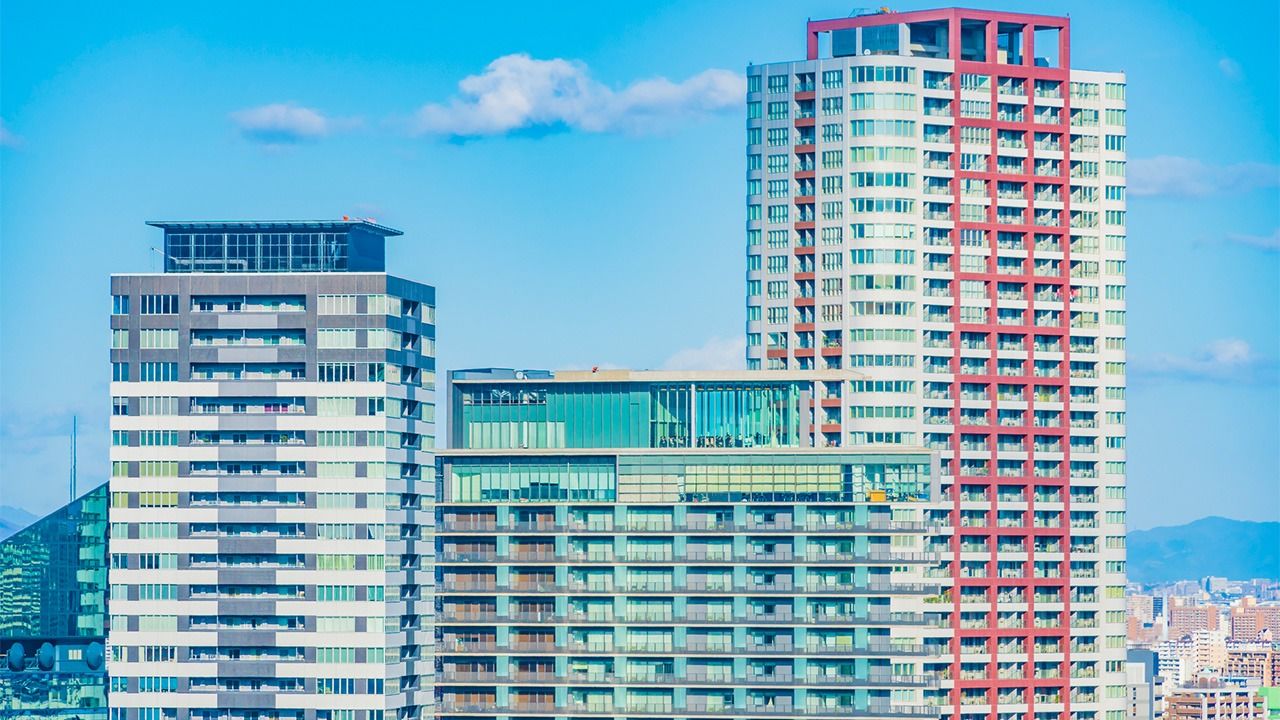Fueled by the weak yen, Taiwanese have embarked on a buying spree of Japanese real estate. What makes these properties so attractive? Are there concerns about a decline in asset values? How do these buyers intend to use them? Real estate agents and purchasers shed some light on the situation.
Japanese Real Estate a Hot Topic in Taiwan
A salesman holds a briefing session on a weekend morning at an office building near the famous Taipei 101—formerly one of the tallest buildings in the world. This briefing focuses on a soon-to-be-completed high-rise condominium in Higashi-Umeda, Osaka, Japan.
Almost all 50 seats are filled. The salesman begins by describing the surrounding environment of the new apartment building and future expectations for property values, and tells the audience that Osaka “is a city with great potential—the Expo is taking place in 2025 and a casino project is underway.”
Wealthy Taiwanese are enthusiastic about owning real estate as an investment strategy and treat buying and selling property almost like a game. However, even in Taiwan or mainland China, they face numerous obstacles to owning property. This is also true in Japan, with the added complication of a language barrier. Nevertheless, Taiwanese are enthusiastic about Japanese property.
Wang Mao-Sang heads the Japan business arm of Sinyi Realty, which hosted the briefing session. He tells me: “The project developer is someone we have done business with before and they appreciated our company’s ability to deliver. That is why they’ve allocated preferential sales rights to our Taiwanese clients for this new project.”
This suggests that Taiwanese people’s interest in purchasing Japanese real estate is not new.
The Deciding Factor? “Rate of Return”
I ask Wang about the new trend of selling new high-rise condos built in Japan to Taiwanese even before Japanese people. He notes that this trend was particularly noticeable in Osaka: “In fiscal 2022, while the sales performance of Tokyo and Osaka branches of Sinyi Realty were about the same, in Osaka, about 80% of sales were new high-rise condominiums. The Expo and other developments are driving demand for these kinds of properties and construction is rapidly progressing.”
Wang notes that even in fiscal 2021—during the COVID-19 pandemic—newly constructed condos by Daiwa House and other major Japanese construction companies also sold well. As the pandemic peaked, property purchases by Taiwanese grew further.
“In 2022, one major property project, Tokyū’s Branz Tower in Honmachi, Osaka, saw 20 percent of all units purchased by Taiwanese. This strengthened the trust between our company and the Japanese developer, and they’re now prioritizing our company when they sell properties.”
Why, then, is Tokyo different?
“Tokyo is of course the most popular area,” says Wang, “but because of the lack of new properties, only about 30 to 40 percent of our sales are of units in new high-rise condos. In Taiwan, newly built properties are particularly prized for their stable asset values. Also, new condominiums are preferred because the asset increases in value, quite apart from changes in the rate of return.”
Nevertheless, Wang acknowledges it it this rate that Taiwanese are most concerned about when purchasing real estate. “For example, if a property purchased for 10 million yen yields rental income of 1 million yen a year, for a return rate of 10 percent, the investor can recover the full outlay within a decade.”
Of course, he says, real estate investment is not that simple. “It’s necessary to consider property management expenses and whether the asset will indeed increase in value in the future. However, for Taiwanese, the high returns on new condos are the primary consideration when purchasing real estate assets.”
Taiwanese buyers appear to be investing in Tokyo and Osaka expecting that property values in major urban areas will appreciate in line with the Taiwanese experience.
Paid in Full
When I ask a Japanese developer why they gravitate toward Taiwanese investors, the answer was clear: “reliable payment.” The developer goes on:
“More than half of Taiwanese investors in Japanese property don’t take out loans. They pay in full in cash. This is probably the biggest reason we like to sell to Taiwanese. If they do take out a loan, most will finance 30 to 40 percent of the amount on their own and repay the remainder over 20 years at around 2 percent interest. Furthermore, people looking to own real estate in a foreign country are usually already financially comfortable and able to make up-front cash commitments.”
The developer also notes that Taiwanese are aware of the skyrocketing real estate values around the city of Kumamoto since TSMC, the world’s largest semiconductor manufacturer, announced its entry into Japan and intention to build a factory there. “Business-savvy people are also paying attention to local real estate developments connected to this.”
Wang, meanwhile, notes that his company is less likely to make this region a focus of its business.
“A smaller company that’s a subcontractor for TSMC in Taiwan has already made inquiries with us about factory sites in Kumamoto Prefecture. We’re looking into it, but our focus remains on Tokyo and Osaka—we are not currently actively introducing Taiwanese to other regions.”
The reason, he explains, is because purchasing second-hand properties outside the main urban areas can lead to unexpected problems after purchase. “For example, even a large property with used but high-quality facilities may not meet certain current standards, and a government office might demand that the new owner pay for repairs or upgrades. As a foreign investor, this puts you in a vulnerable situation. To avoid these kinds of risks, we continue to focus on new properties in major cities.”
New Ways to Use Rural Real Estate
I later spoke with a Taiwanese advertising company owner who purchased a condo unit in Osaka from Sinyi Realty during the pandemic. He told me that he had decided to invest cash in Japanese real estate after the profitable sale of a Taipei property:
“I’d been doing a lot of business with China, but because of the strained relations between China and Taiwan, I thought I would diversify my risk profile. I was also thinking of shifting some of my business to Japan after the pandemic, so I thought about real estate as an entry point. I did some research and found that a property worth 100 million yen in Tokyo was 30 to 40 percent cheaper in Osaka. I previewed properties online and made an immediate decision to invest.”
He went on to tell me about an acquaintance who had purchased two properties in central Tokyo over the past year, including one in the pricy central city of Minato. He also mentioned a woman who made an on-the-spot decision to purchase property in Osaka after hearing about his own experience. He then talked about future property investment plans:
“With the help of a Korean friend living in Japan, I’m currently looking for a bargain on a lodging facility in Ōita Prefecture’s Yufuin, a popular hot spring resort area with many Korean tourists. Last year, after being approached by a retiring Japanese owner, my friend purchased a hot spring ryokan with about 10 rooms. It’s fully booked every day, mainly with Korean guests. My friend and I are thinking of building an even larger hotel with more rooms to attract Taiwanese tourists. We have already asked the president of a travel agency and others we know to invest in the project. We’re hoping after raising funds we can buy a hotel property worth 100 to 200 million yen.”
There are of course fears about Japan being “sold off” to foreigners. Previously, people have raised concerns about Australian investors looking to take advantage of the large number of Australians flocking to ski resorts in Niseko, (Hokkaidō). There was also a case of Chinese woman purchasing an uninhabited island in Okinawa.
However, it would be a positive for Japan if the Taiwanese like the investor I spoke with, who know what makes Japan attractive, increase in number. It may lead to new business opportunities and attract more tourists, even to depopulating rural areas.
We should embrace foreigners who can see Japan’s potential in ways even Japanese people cannot imagine.
Source : Nippon.com
















